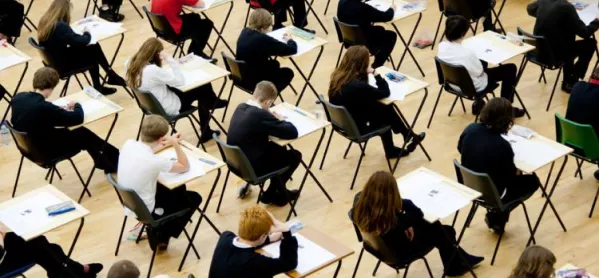Tens of thousands of pupils are being entered into their GCSEs a year early and their grades are suffering as a result, new analysis suggests.
A new report from Education Datalab shows that students who are entered into these exams in Year 10 perform less well than peers with similar prior achievement who sit GCSEs in Year 11.
Data from Ofqual shows there were around 30,000 Year 10 entries in English literature this summer, up from 22,000 last year.
And more than 10,000 have taken English language in Year 10 - down on last year’s figure.
Last year 32,000 pupils took either English language or literature at GCSE a year early - around 6 per cent of the cohort.
Analysis from the Education Datalab shows that Year 10 pupils “tend to achieve less well than Year 11 pupils with similar prior attainment”.
Variations in early GCSE entries
The research also shows that pupils with lower prior attainment are more likely to be entered early.
Education Datalab’s David Thomson said: “Gaps are greater in literature than language, and increase in size as prior attainment increases.
“In literature, gaps are around half a grade in the middle of the distribution, increasing to around three-quarters of a grade at the upper end.”
The early entry tactic used by schools has been heavily criticised in the past. Former education secretary Michael Gove, who attempted a league table crackdown on the practice, said it amounted to cheating.
Education Datalab found that of 3,180 state-funded mainstream secondary schools with Year 10 pupils in 2017, 580 entered at least one pupil for an early GCSE in English language or English literature.
A total of 172 schools (5 per cent) entered 80 per cent or more of their pupils early, and together these schools accounted for over 80 per cent of all the early entries.
Above-average percentages of schools in the West Midlands (9 per cent), Yorkshire and Humber (9 per cent ) and the North East (8 per cent) entered 80 per cent or more of their pupils early




